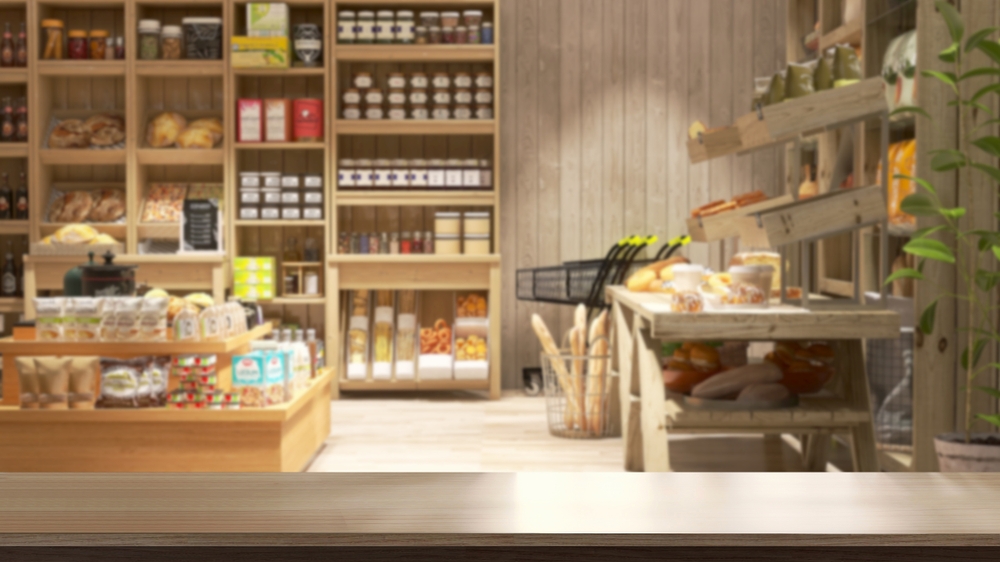Eco-Friendly Practices to Make Your Bakery Greener
By Nikita Nielsen · 19. June 2024
Many bakeries are becoming more conscious of the value of eco-friendliness and actively implementing sustainable practices to reduce their environmental impact.
This blog post covers simple steps to implementing eco-friendly practices in your bakery, focusing on waste reduction, sustainable packaging, and the use of natural resources.
Get ready to “green” your bakery business!
Key Takeaways
- Bakeries can reduce their environmental impact by focusing on sustainable practices like waste reduction and using green resources. 🌍
- Choosing eco-friendly packaging and buying local and organic ingredients support the planet’s health and local economies.
- Installing energy-efficient devices and educating staff on saving energy help bakeries operate more sustainably.
- Being open about sustainability efforts builds confidence with customers, encouraging them to make greener choices.
- Engaging with the community through workshops and collaborations promotes a wider shift towards environmentally friendly practices.
The Importance of Eco-Friendly Practices in Bakeries
 ecofriendly bakery shop
ecofriendly bakery shop
Minimising waste and carbon footprint, sourcing sustainable ingredients, and using resources mindfully are essential for eco-friendly bakery practices.
These initiatives play a key role in environmental conservation and promote sustainability in the bakery industry.
Reducing Waste and Carbon Footprint
Adopting sustainable bakery practices means making changes that have a positive impact on the planet.
Sustainable baking minimises negative effects while boosting positive ones across all business areas.
By focusing on sustainability, bakeries can significantly lower their environmental impact.
Implementing zero-waste tips and tricks plays a crucial role here. It’s about finding creative solutions for waste reduction and best disposal methods.
Bakeries that commit to these practices lessen their carbon footprint and align with the growing consumer demand for eco-friendly options.
Sourcing Sustainable Ingredients
Eco-friendly practices for bakeries start with sourcing sustainable ingredients. This means choosing suppliers who prioritise the planet’s health alongside quality products.
By selecting local and organic ingredients, bakeries can support the ecosystem and reduce transportation emissions, making their operations greener.
Using natural resources for a bakery isn’t just about what’s eco-friendly; it also concerns waste reduction.
A zero-waste approach encourages using every part of an ingredient, limiting leftovers, and finding creative solutions for scraps.
This philosophy aligns with the best disposal practices essential to minimising environmental impact, as outlined in guidelines around the world.
Through these measures, eco-friendly bakery packaging becomes part of a holistic approach to sustainability that reflects conscious choices at every stage from farm to fork.
Mindful Use of Resources
Bakeries can significantly reduce their environmental impact by practising resource consciousness.
This includes adopting energy-efficient methods and equipment to minimise waste and reduce operating costs.
Bakeries can consider investing in ovens that consume less power or water-saving devices for cleaning—simple changes with big impacts.
Sourcing ingredients sustainably plays a crucial role too. By choosing local and organic suppliers, bakeries minimise their carbon footprint and support the community.
Zero-waste baking initiatives further this effort, showing how creativity in using every part of an ingredient avoids unnecessary waste.
Through these mindful practices, businesses meet profit goals while preserving resources for future generations, aligning with sustainable principles endorsed by comprehensive guides.
Tips for Implementing Eco-Friendly Practices
 bakery owner in an ecofriendly bakery shop
bakery owner in an ecofriendly bakery shop
Consider implementing eco-friendly practices in your bakery to contribute to a healthier planet.
Start by exploring sustainable packaging options and sourcing local, organic ingredients for a more environmentally conscious approach to baking.
Sustainable Packaging Solutions
Switching to sustainable packaging solutions is a game-changer for bakeries aiming to reduce their environmental impact.
It helps in cutting down waste and appeals to eco-conscious customers.
Here are some strategies:
- Opt for biodegradable and compostable materials for packaging bread, cakes, and other baked goods. These materials break down naturally, leaving no harmful residues behind.
- Use recycled paper bags instead of plastic ones. Recycled paper bags can be used multiple times and are easier to recycle than plastic.
- Provide reusable containers with a discount incentive for customers who bring them back. This encourages repeat business while reducing single-use packaging waste.
- Invest in plant-based plastics for packaging items that require a moisture barrier. Plant-based plastics are made from renewable resources and are compostable under the right conditions.
- Encourage bulk purchases by offering products in larger, eco-friendly packages rather than individual wraps, reducing the amount of overall packaging needed.
- Design minimal packaging with reduced materials use; focus on simplicity and practicality without sacrificing protection for your baked goods.
- Shop around for suppliers that prioritise sustainability in their manufacturing processes, ensuring that your efforts extend through your supply chain.
- Create a take-back programme where customers can return the packaging they received with their purchase, which you then recycle or reuse properly, fostering a circular economy around your bakery’s operations.
The next step is buying local and organic ingredients to further improve your bakery’s sustainability efforts.
Buying Local and Organic 🥕
Buying local and organic ingredients is a cornerstone of sustainable bakery practices.
It supports the environment and local economies while ensuring that your products are fresh and of high quality.
- Sourcing ingredients locally reduces the carbon footprint associated with transporting goods over long distances. This practice cuts down on fuel consumption and greenhouse gas emissions, making it an eco-friendly choice.
- Organic farming methods avoid using synthetic pesticides and fertilisers, which can harm wildlife, water supplies, and workers’ health. By choosing organic, bakeries help to promote biodiversity and safer working conditions in agriculture.
- Establishing partnerships with local farmers and suppliers fosters community ties and economic stability in your area. It helps keep money within the community, supporting other small businesses and creating jobs.
- Offering seasonal menus that rely on what’s available locally can also reduce waste by aligning bakery production with the natural growing cycles of ingredients. This ensures that food is consumed when it’s at its freshest and most nutritious.
- Bakeries that buy local and organic can use this as a selling point to attract customers who value sustainability and quality. Transparency about sourcing can build trust with consumers looking for ethically produced goods.
- Local sourcing often means bakeries get products that haven’t travelled far, so they’re fresher than those that have been shipped across countries or continents. Freshness not only improves taste but also means nutritional content is likely higher.
- Engaging in direct trade practices where possible — buying straight from producers without going through large distributors — can also ensure more of the profits go directly to growers, supporting their livelihoods more effectively than traditional supply chains might.
By integrating these practices into their operations, bakeries not only contribute to environmental sustainability but also enjoy the benefits of offering higher quality products, thus improving their reputation among consumers who prioritise ethics alongside taste in their purchasing decisions.
Energy Efficiency 💡
Energy efficiency is another crucial step bakeries can take to reduce their environmental impact. Here’s how:
- Upgrade to energy-efficient appliances: Opt for ovens, refrigerators, and mixers with high energy ratings to cut down on electricity use.
- Install LED lighting: Replace old bulbs with LED lights that use less energy and last longer, reducing waste.
- Use programmable thermostats: Keep the bakery at optimal temperatures for comfort without wasting energy.
- Insulate properly: Ensure the bakery is well-insulated to maintain temperature efficiently, lessening the need for heating or cooling.
- Conduct regular maintenance: Keep equipment in top condition to ensure it runs efficiently and prevents unnecessary energy usage.
- Train staff on energy-saving practices: Teach employees about turning off appliances when not in use and other ways to save power.
- Monitor energy usage: Use smart metres or energy management systems to track and optimise your bakery’s energy consumption.
- Engage customers by explaining how these practices save energy and contribute to a greener planet.
Each of these steps helps bakeries become more sustainable, balancing their need for profitability with the responsibility towards future generations.
Engaging Customers and Community 🌍
Engage your community by openly sharing your sustainability efforts and empowering customers to make eco-friendly choices, encouraging them to read more.
Transparency About Sustainability Efforts
Bakeries are getting more open about their journey to sustainability.
They share how they’re cutting down waste and carbon emissions, sourcing eco-friendly ingredients, and using resources wisely.
This sharing of information empowers people to make greener choices themselves. It’s all about building a community that cares for the planet together.
Empowering Customers to Make Eco-Friendly Choices 🌿
Engage customers with transparent information about sustainability efforts. Offer eco-friendly alternatives and educate them on the benefits of making green choices.
Collaborate with the community to promote a greener future through awareness campaigns, workshops, and events.
Encourage customers to make eco-friendly choices by offering sustainable products and highlighting the positive impact of their decisions on the environment.
Foster a sense of responsibility and empowerment among customers to drive change towards a more sustainable future.
Conclusion
Embrace these eco-friendly practices in your bakery to pave the way for a greener future.
Sustainable baking promotes environmental responsibility by decreasing waste and carbon impact.
Start by sourcing sustainable ingredients and using resources mindfully. Additionally, use sustainable packaging solutions and enhance energy efficiency to align with eco-friendly practices.
Finally, engage customers by transparently sharing your sustainability efforts and empowering them to make environmentally friendly choices.
FAQs
Can I make my bakery eco-friendly without spending a lot of money?
Yes, you can start with simple changes like reducing waste and using energy-efficient lighting.
Do customers really care if a bakery is eco-friendly?
Absolutely, many people prefer supporting businesses that care about the environment.
What’s one easy step to become more eco-friendly in my bakery?
Switching to biodegradable packaging for your baked goods is an easy first step.

